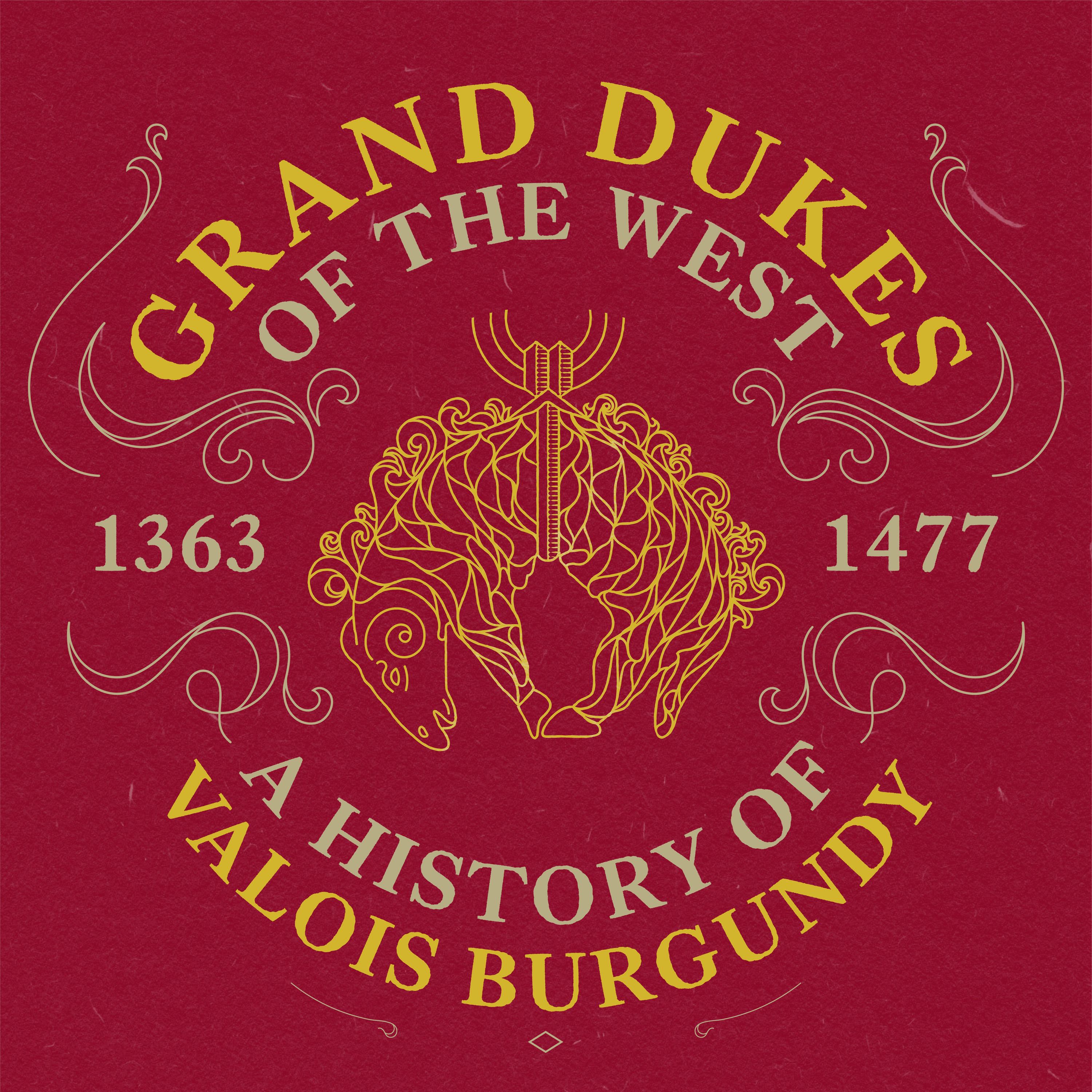
La Fayette, We Are Here!
La Fayette, We Are Here!
An Overview of All French History
For our second episode, we are taking a grand Tour de France. This is a complete overview of France's 20 centuries long history. It is not exhaustive, of course, but it should help people refresh their memory or get a better grip on the whole of French history. Everyone should then be able to enjoy and appreciate future episodes even more.
Should you wish to go directly to specific eras, here are the time codes:
00:00 - Introduction and Antiquity
03:31 - Barbarian Invasions and the Frankish Kingdom
07:25 - Charlemagne & Carolingian Empire
11:21 - The Birth of France
21:50 - The Hundred Years' War
28:49 - The Plague & The Renaissance
32:06 - Wars of Religion & Rise of Absolute Monarchy
35:25 - Louis XIV
39:45 - Louis XV, Seven Years' War & the Lumières
43:25 - The French Revolution
49:25 - Napoléon
53:11 - The Restoration, Second Republic and Second Empire
1:00:23 - The Third Republic and WWI
1:06:21 - The Inter-War and WWII
1:09:34 - The Fourth Republic and Decolonization
1:11:59 - The Fifth Republic, De Gaulle and Conclusion
Recommended books:
Maurice Druon: Les Rois Maudits
Chrétien de Troyes: Perceval ou le Conte du Graal
Alexandre Dumas: Les Trois Mousquetaires
Victor Hugo: Les Misérables
Reach out, support the show and give me feedback!
A quick overview of all French history
Welcome back to “La Fayette, we are here!”, A French history podcast for the American public. I’m your host, Emmanuel Dubois and today we are taking a grand Tour de France !
I dedicate this episode to my father, Michel Dubois, who died of cancer on April 24th. He was a great inspiration to me and loved his country, France. Merci papa.
What I am attempting here, is blasphemy. Trying to sum up over 20 centuries of history in less than an hour is ludicrous. I mean, you literally could study it all your life and not be done. But I figured that giving my listeners a quick panorama of France’s history could prove a great help for the future episodes.
I’m not trying to be exhaustive here, but to provide a broad idea of French History. Still, this will be longer than my average episode. But, here we go.
Antiquity
- Before there was France, there was Gaul. Gauls are a Celtic People. The French like to think of themselves as their heirs. Conquered by Julius Cesar in 52BC. Becomes Roman provinces. Part of modern Belgium, Switzerland and Germany are in it.
- This is the Gallo-Romaine (Roman Gaul) civilization. Many cities are built or modernized. Defensive walls, roads, sewers, all these improvements are made. Lots are still visible today.
- Christianity becomes very strong in the 2nd century and explodes under Diocletian's rule, in the 4th century. They are laying the foundations of the future French dioceses.
- Even though it flourishes culturally and economically, Gaul is under constant pressure. Foreigners are attacking constantly. It's a prelude to the coming Barbarian invasions in the next couple of centuries
- The Western Roman Empire (there are two Empires after the 4th century, Western based in Rome, Eastern based in Constantinople, now Istanbul) crumbles pressure from people living outside it and tensions from inside of it. The 5th century sees huge movements of population and military invasions. The Huns enter Gaul in 451. They are repelled, but the situation is dire. During the whole century, various Germanic tribes get in Gaul. One of them, is the Franks, coming from modern day Belgium.
Frankish Kingdom
- In 496, Clovis, the Frankish leader, beats other Germanic tribes and the Franks become the dominating people in Gaul, at least militarily. In a gesture of great political acumen, Clovis gets baptized in Reims the same year. All the future French kings will be crowned in Reims. After various victories the Franks unite the territory under Frankish rule by 536. It is now a united and Christian nation. A first non-Roman one. This is why France is considered the first Christian Kingdom, the Fille aînée de l'Église (Eldest daughter of the Church). The new dynasty is called the Merovingian dynasty. The name comes from Frankish mythology.
- The problem with the Merovingians is that they divide their kingdoms amongst their sons. This weakens the kingdoms and entails war. Also, during this period, the country gets more rural. This people aren't city dwellers like the Romans were or the Gallo-Roman. All these factors have profound impacts on what is now the Frankish Kingdom.
- Christianity plays a key role in uniting the various ethnic peoples living in France. Churches, monasteries are built. Kings reinforce the Church's power. The Church itself improves its structures of power, becoming very effective. Liturgic art flourishes everywhere. Even though many centuries past, you can still admire some today.
- Nevertheless, at the end of the 7th century, the Frankish Kingdom is divided in three major parts: Austrasie (North-East), Neustrie (North-West) and Bourgogne (south East). It should be noted that Bretagne (Brittany) is not part of the Frankish kingdom at this point, it will fully join France in the 15th century.
- The Franks of the 8th century have to face The Moors. The newly formed religion of Islam is expending rapidly, having taken North Africa and most of modern-day Spain, but the Frankish military managed to defeat them at Poitier, in 732, under the Frankish King Charles Martel.
- The next big historical figure is Charlemagne. Born somewhere in the 740's, he will have a profound impact on Western Europe. He's the grandson of Charles Martel and the son of Pépin le Bref (meaning Pépin the Short). This new lineage of Frankish kings will start a new dynasty, the Carolingians. The name derives from Charles Martel, the founder of the dynasty.
- Charlemagne is a conqueror. His army's greatest strength is Heavy Cavalry. He gains all around the Frankish kingdom but especially in Germany. By 800, his kingdom is around a million square kilometres (modern France is about 550000 square KM). He changes its structure and makes it an Empire. He is crowned emperor in 800, in Rome by the pope and establishes his capital in Aix-la-Chapelle, now in Germany. He wants to recreate the Roman Empire... quite the visionary.
- He also changes the educational system, he's still seen in France as the emperor who created school. He reinforces the links between his power and the Church, making the Carolingian kings basically the Church's defenders in Western Europe.
- Probably his most enduring accomplishment is the reform of the educational system and a renaissance of Latin, the old language having evolved in multiple directions during the last 800 years. He uniforms it and basically lays the foundations of the modern French language.
- Upon his death, his son Louis, known as Louis le Pieux (the Pious) inherits the throne but the Empire proves unmanageable. It is too big and doesn't have a communication system and a well oiled trade system like the old Roman Empire had.
- When he dies in 840, his three sons go to war agains one another until the traité de Verdun, or Verdun Treaty, 843.
- The Empire is divided in three kingdoms: Western Francie, Middle Francie (sometimes called Lotharingie) and Eastern Francie.
- Charles II, nicknamed Charles le Chauve (the bald) becomes king of Western Francie, delimited by the Escaut, Meuse, Saône and Rhône rivers. Roughly France's borders during the Middle Ages. This is the time period when we move from Frankish kingdoms to actual France. France as a nation, is born.
Feudal France
- One must understand that we are here in a feudal system, where the king, although powerful, has limited powers. The territory he controls his limited, his authority is challenged by powerful noblemen. The French kings will work over the next centuries to alleviate this limitations and establish a strong central power in France.
- In the 9th century, France is under constant pressures from invaders. Moors or "Sarasins" from the South, Vikings, or Normands from the north. The Normands will establish themselves in northern France, creating Normandy. They will in due course invade England, but this is another story.
- The Carolingian monarchy is weaker than before, and strong noblemen unite to challenge it. During the 9th and 10th centuries, kings will inherit the throne or, sometimes, be elected by nobles. In 987, after the king Louis V dies without an heir, a new leader is chosen: Hugues Capet, from the strong Robertian branch (a Frankish family established in Neustrie, northern France). The Capetian dynasty, begins. It will endure until the Revolution of 1789
- During their first couple of centuries in power, the Capetian kings will make slow progress to increase their authority and to expand the Royal Domain. The kingdom itself modernises. Agricultural improvement allow France to increase the yearly output enormously, therefore favouring a growth in the population. Parishes and towns are established, most of them still there today. Local lords benefit of this growth. But in the long run, the Capetian kings will gain the most of it.
- During the 11th century, the Capetian kings actually rule over their domain, roughly the current Parisian region. The Dukes around it are way more powerful. A perfect example is Guillaume, Duke of Normandy, who invades England in 1066. This link between France and England will be the cause of a lot of tensions and wars over the next centuries.
- In the 12th century, the Capetian kings reinforce the feudal links between them and their vassals (dukes, counts, etc.) so that all the chain of power ends with the king. That combined with successful military campaign by Louis VI Le Gros and Louis VII Le Jeune help making the French monarchy stronger and its power over the French lords more direct.
- Trouble arises in 1152 when the Duke of Normandy and Count of Anjou, Henri Plantagenet, marries Aliénor d'Aquitaine, who the French king Louis VII just divorced. He becomes Duke of Aquitain and king of England. Effectively ruling over Normandy, Anjou, Aquitaine (southwestern France) and England, this is called the Plantagenet empire and is the beginning of a situation that will culminate in the Hundred Years war a couple centuries later
- All the while, another situation develops. The Crusades, this series of campaigns ordered by the Papacy to retake the Holy Land. France will be a key player in those. Warrior religious orders appear in France, the Hospitaliers and the Templiers, or Templar Knights in English.
- Quick literary note, the French author Chrétien de Troyes writes his novel Perceval in 1182... this is considered one of the first novel ever written and is the first story about the Holy Grail. There will be more of them
- The French Kingdom and the Capetian dynasty will become the dominant power in Europe between the end of the 12th century and the first third of the 14th. The first really remarkable king is Philipe Auguste, crowned in 1180.
- He will retake most of the Plantagenet possessions in France from Richard the Lionheart and his brother John Lackland, Jean Sans Terre in French. Normandie, Anjou, Tourraine, Bretagne all these territories are retaken by the French king, reinforcing his own power as well as his kingdom's. Northern France is under the direct rule of the French king,. His son, Louis VIII will start expanding the Royal king down southward, in the Languedoc.
- Louis VIII dies young in 1226 and his son, Louis, is too young to reign. His mother, Blanche de Castille, is regent. Louis XI becomes king in 1235. He is better know as Saint Louis, the only canonized French king. He will change the French judicial system, making the King the ultimate judge.
- He will prove quite the multitasker. He takes great advantage of the feudal system of vassalage to make himself master of all Lords. He retakes more territory from other noblemen and from the Plantagenet, annexing Aquitaine, Maine and Provence. In 1241-1242, the lord of Poitou Hugues de Lusignan rebels against his lord, the French king, and unites with the English King Henry III. They are crushed at the battle of Taillebourg in 1242 by Louis' army. Louis himself charges the English troops on a bridge, galvanizing his troops and playing a key role in the military victory. Louis will also be part of the 7th and eight crusade. He will again lead his troops into battle and will be made prisoner in 1270 and will die of dysentery.
- His actions during the Crusades as well as his sense of justice and great piety will lead to his canonisation in 1297. At this point, France is the richest and strongest European kingdom.
- This is the age of the Cathedrals and French civilization is hugely influential in Europe. Notre-Dame de Paris, Chartres, Tours, Reims, Bourges, Amiens, all these fantastic Gothic cathedrals are built during this period. Special mention for the Sainte Chapelle in Paris, built under Louis IX. It is much smaller in scale but truly magnificent, a masterpiece of Gothique Flamboyant.
End of the Capetian miracle
- The next period will see the temporary collapse of France as a great kingdom
- The king Philip IV Le Bel (the handsome) is strong, powerful and respected. He becomes king in 1285 and will do everything in his power to make the central power more absolute. He will force the Pope to leave Rome for Avignon to be under his "protection", he will create more taxes. He makes sure the French monarchy is more and more recognized by law as being divine, ordained by God and not by the Church. This will be completed later in the 14th century.
- But, he will also be the last great French monarch of this time period. In 1307 he has the Templars arrested and their order dissolved. He initiates the order on Friday the 13th, 1307. Yes, it comes from here.
- In 1314, their Leader Jacques de Molay is burned on the stakes and, according to the legend, he curses the French king. This is the beginning of an era made famous by Maurice Druon stunning book series "Les rois maudits", The Accursed Kings. I highly recommend that you read that
- Since Hugues Capet in 987, the French kings always had sons that survived and ruled. This was called the Capetian miracle. Almost four centuries of dynastic continuity. No war of succession, no serious contestation of the throne. This will change, a perfect storm his preparing,
The Hundred Years' War
- Philipe has three sons. The eldest, Louis, becomes Louis X in 1314, but he's of fragile health and dies in 1316. His infant son, Jean, dies soon after. He also has a daughter Jeanne, but the crown goes to his brother, Philipe, who becomes Philipe V. He dies in 1322 without an heir. The crown then goes to the third brother, Charles. He dies in 1328, also without an heir.
- For the first time, the Capetian dynasty doesn't have a clear successor to the throne.
- The first option is Jeanne, Louis X's daughter. But the French noblemen decide against it. They fear that a foreign prince could marry her and effectively take control of the kingdom, and they also invoque the Loi Salique, an old Frankish law excluding women from inheriting land. It's basically misogyny disguised as law.
- The second option is Philipe IV's grand son, Edward. His mother is the deceased king's daughter, Isabelle de France. Only problem, he's the king of England, Edward III. Again, the French noblemen decide against it, saying that the king has to be born in France. It's the first time that a monarch's place of birth actually matters, and is considered the beginning of the French national identity.
- They finally decide on Philippe IV's nephew, cousin of the other dead kings, Philippe, who becomes Philippe VI. Edward III will pay homage to him, because he still has lands in France, but the troubles are far from over.
- The English kings broods over this situation until he can't take it anymore, and attacks France in 1338. This is the beginning of the Hundred Years'War, the first major conflict between established European kingdoms.
- Edward will prove a formidable military commander and will win many victories over the French. The French military are discredited, the English seize more and more territory. In 1356, the French king Jean II (Le Bon) is captured and forced to sign an humiliating treaty with England.
- The French will retake some lost territory over the next 20 years or so, but this is only a setback for the English.
- Real trouble starts agin in 1380 when Charles VI becomes king. He's a minor, so there is a regency. He will also suffer from grave mental illness, proving very unstable. This will favour a French Civil war between Armagnacs and Bourguinons, on top of the war with England.
- For the next 50 years, the French suffer many defeats, the most famous one being at Azincourt in 1415, where the English longbowmen destroy the French heavy cavalry and infantry.
- The turning point of the war happens in 1429, when a young woman from Lorraine arrives on the scene. Jeanne d'Arc (Johanne of Arc). I'll make a full episode on her at some point, but suffice to say that she manages to rally the French army, to retake the city of Orléans and to allow the Dauphin (the to be King Charles) to be crowned in Rheims and to become Charles VII.
- From then on, the French will gradually fight the Enlgish off until they are completely expelled from France in 1453, ending the war.
- But war isn't the only issue of the time. A global climatic drop in temperature and an overuse of arable land provoke a drop in productivity, inducing one famine after another during the XIV and XV century.
- On top of that, Europe is struck by a most vicious enemy in the second half of the XIV century: the Black Death, the plague. It is estimated that it killed between half and two thirds of Europeans during this period. Imagine that! If a similar illness where to happen in the USA today, we'd be talking of 165 to 200 million dead! This is a huge blow to European societies, all of them. It is by far the worst period for France. War with England, Civil war, famines and the plague leave the country extremely weakened.
Renaissance
- But from that darkness, light will shine. The kings Louis XI, Charles VIII and Louis XII will make the situation better, preparing the country for the its next big change: The Renaissance
- The Renaissance is many things. It's an artistic, scientific and cultural revolution, mostly coming from Italy.
- The emblematic king of this era is François 1er, Francis the 1st. He will be king from 1515 to 1545 and will greatly reinforce the throne's authority and favour the Renaissance in France. Under François, the French monarchy evolves from a feudal system to an absolutist system, where the king is ordained by God and answers to no man. This transition will be completed a century and a half later, by Louis XIV.
- It's also under his reign that French civilization starts to shine again. The famous Loire castles are built during that era. Famous examples are Chambord, Chenonceau or Azay-le-Rideau. Thinkers, scientists and artists from all over Europe come over to France and are supported by the king himself. The most famous example is Leonardo da Vinci, who will spend the last years of his life in France
Wars of Religion
- But the situation never remains calm for long in France. From 1559 to 1598 the country is torn in what is known as the Wars of Religion. This is the time of the Reform. This is also a very complex subject, but to make it short, the country will tear itself apart for 40 years.
- Betrayals, changes of religious allegiance, massacres. All the worst things you can imagine happen during this period. The most famous example is the Massacre of the Saint-Barthélémy on August 24th, 1572, were over 3000 French Protestants are killed in Paris under the impulsion of Catherine de Medici, approved by the King, her son, Charles IX.
- It ends in 1598 when Henry IV, who was a Protestant, converts to the Catholic faith and proclaims the Edit de Nantes, basically allowing the Protestants to live in France, to simplify the subject greatly.
Louis XIII and XIV
- France regains its status of the strongest, wealthiest and most influential European nation in the XVII century. It will have great statesmen, economists, military men and kings, one after the other.
- Louis XIII becomes king in 1610, but his mother Catherine de Medici is regent, because he's minor. In time, he will "exile" his mother in Blois and affirm his control. His genius move is to put the Cardinal de Richelieu in charge of most States affairs. He's brillant, ruthless and efficient.
- Literary note: Alexandre Dumas' Les Trois Mousquetaires happens during this period, another highly recommended read.
- Richelieu will reinforce the country's economy and military. France will play an active role in the Thirty Years' War, that is mostly fought in Germany and involves many European powers.
- At the same time, France expands its North American colony, New France. Quebec City is founded in 1608, Ville Marie (now Montreal) in 1642. French explorers and settlers colonize Eastern Canada, part of the Midwest and Louisiana over the next century.
- Louis XIII dies in 1643. His son, Louis XIV is only five. His mother, Anne d'Autriche becomes regent and works with Mazarin, an Italian Cardinal that takes over Richelieu's post basically.
- Louis XIVS' childhood is marked by the Fronde. A revolt of French dukes and noblemen against the crown will have a big impact on his character. He will always be wary of the strong men in his kingdom and will work to control them.
- In 1661, Mazarin dies. Louis takes matters in ins hands personally. He will prove to be born to be king, both literally and figuratively. He's extremely smart, sensible to arts (himself a remarkable dancer), a workaholic and with a very strong health. He will live until 1715. He will be succeeded by his great grandson!
- His reign is divided in two parts. A Règne Solaire (Solar reign) and a Règne Crepusculaire (crepuscular reign). During the first part of his reign, he will take great advantage of the peace and stability established by his predecessor. He will also hire the services of Colbert, the great economist and planifier. Together they rebuilt the French economy and modernize the country. Louis is also successful at war, winning many victories. French artillery proves to be the best in Europe under his reign. Louis recognizes this and have the French canon marked with the inscription Ultima ratio regum which means "The Kings Last Argument". You can actually see some of those canons at Fort Ticonderoga, Upstate New York.
- New France will also expand and reinforce during his reign. Louis understands very well the importance of North America, even if some his advisors consider it a waste of time and money.
- Louis also starts building the Versailles castle and moves his court from Paris to Versailles. He increases the role of court and uses it to subjugate the French nobles. He has a deep understanding of protocol and pomp. By doing so, he finishes the work started a couple centuries before him, becoming a real absolute monarch, unchallengeable, standing above every living soul in his kingdom.
- His accomplishments inside of France and outside of it are truly astonishing, earning him the title of The Sun King.
- However, the second part of his reign is not as sunny. Although he doesn't suffer massive military defeats, he does have setbacks and minor defeats. As he gets older, he also gets more religiously conservative, becoming a bigot and less open to advice. He also revoked the Edit of Nantes, removing religious liberty in France. When he dies in 1715, he leaves France hugely powerful and influential, but indebted.
Les Lumières
- Louis XV, Louis XIV great grandson, is usually seen as a weaker king. He certainly had big shoes to fill.
- But under his reign, France will established itself as the cultural and scientific hub of Europe. Mathematicians like Clairaut, d'Alembert and Lagrange make huge advancements. Maupertuis and Laplace keep making new findings in newtonian physics. The chemist Lavoisier is one of the XVIII's century best scientists, establishing modern chemistry. While England produces the best engineers and technicians, France produces the best scientist of the time.
- Another big change is operating in France: Les Lumières, the Enlightenment. Influenced by English thinkers, French authors and philosophers will open the way to modernity. Montesquieu, Diderot, Voltaire, Rousseau and others will promote ideals of scientific thinking, personal liberties and enlightened government. They publish the first Encyclopédie in 1751, a key element of their movement and of modern European philosophies.
- Their social advancement will play a key role in making Europe the center of power of the world for the next two centuries. France will remain at the center of it, until the mid XXth century.
- Louis XV is not incompetent, but he is not as interested as his predecessor was in royal duty.
- He's a victor in the War of the Austrian succession in 1748 but he is defeated in the Seven Years' War, known in America as the French in Indian War.
- This enormous conflict is a proto World War. England and Prussia are at war with France and Austria in 1756 because of colonial and European rivalries. France will be the great loser of that war, suffering defeats in North America (Quebec City falls in 1759), India, Germany and on the seas. In the end, it's the enormous cost of this prolonged conflict that forces France to sue for Peace. By signing the Treaty of Paris, France renounces most of its North American possessions and is humiliated on the international scene. England is stronger than ever, but indebted. To solve this, they will raise taxes, especially in the American colonies, with the consequences that we know.
- Louis XV dies in 1774. His successor, his grandson, Louis XVI was a clever and good man. But not one strong enough to be king.
- Louis XVI faces economical and social challenges like no other kings in the last three centuries. Although his participation in the American War of Independence proves successful, he still has to meet many challenges in France
- The French national opinion actually starts to matter. Local leaders are chosen, elected, and protest against injustices.
- This all comes to a head in 1789.
French Revolution
- We are now entering the era of the French Revolution. This will define what France as a country is today. It will actually define what a Nation State is. Before that, you were a subject of the French king. "National sentiment" didn't really exist as we understand it. You recognized the crown of course, but your country was the local area where you lived. The French Revolution changes all that, and it will export its ideals all over Europe and then the world.
- Since the Lumières, the French people have started a more profound reflexion about what form their government should take. Absolute monarchy doesn't seem to be the only valid choice anymore.
- Finances are also very bad, Louis XV and Louis XVI's reigns have been marked by an impoverishment of the population.
- Because of all this, the king has to agree to the États Généraux, or Estates General, a meeting of representatives of all layers of the population in May 1789
- The people have lists of demands written in books called Cahiers de doléances.
- These demands rapidly transform into a deconstruction of the whole French political system. It will soon be called the Ancien Régime, the Old Régime.
- Privileges are abolished, the National Assembly is created, the Déclaration des Droits de l'homme is proclaimed in August 1789.
- On July 14 1789, the People of Paris storm the Bastille prison, dealing a deadly blow to the French Monarchy, by destroying its main landmark of repression and tyranny.
- The king is still there, but his power is no longer absolute and doesn't come from God anymore. It comes from a Constitution, written by men.
- But this constitutional monarchy fails, and the first Republic is proclaim in 1792.
- Louis XVI becomes the citizen Louis Capet, coming full circle with his ancestor Hugues Capet.
- In 1793, the newly formed Republic tries to eliminate everything from the Old Régime. A new calendar system is implemented, the metric system is adopted. And Louis Capet is executed, guillotined, along with his wife.
- This is the period known in France as the Terror. In a couple years, about 1400 people, mostly nobles, are killed in France.
- At the same time, various European monarchies attack France to undo the Revolution. The regicide was the last drop. France, the oldest Christian Monarchy is now a Republic, and all European monarchs are shaking with fear!
- This is the beginning of a period of great turmoil in France. Between 1789 and 1871, it will have seven major change of political systems, plus four minor ones.
- The country is in taters. Parts of it are experiencing civil war, while foreign powers are attacking it. France is on its knees. Yet, within fifteen years, it will conquer all of Europe, and even try its hand at invading Russia. How's that possible?!
Napoléon
- The Answer, has a name. Napoléon Bonaparte. This general of artillery will rise to power until he seizes completely with a coup in November 1799.
- Bonaparte is a very successful general. Defeating ennemies inside and outside of French borders. He revolutionizes military thinking, promoting a war of movement and a completely new use of artillery, making it mobile.
- He became Consul in 1799 and then takes over completely. He becomes Emperor of the French in 1804. His armies will defeat all is opponents.
- How? By mobilizing all of France.
- France is the most populous country in Europe. And the French, because of the Revolution are willing to arm everyone. This horrifies the monarchies. They would never put weapons in the hands of the plebes! They could turn it against them! But the French can, and they do.
- When this new French army is used by the military genius that Bonaparte is, it becomes a most formidable tool. Beating country after country, until all of Europe, except England, is either invaded or obedient to his will by 1812.
- When Napoléon tries to invade Russia, it turns into a disaster. And after a coalition of country defeat him, he abdicates and is exiled on Elba Island, in the Mediterranean.
- Louis XVIII, Louis XVI's brother (Louis XVI's son should have been Louis XVII but died in 1795) becomes king, it's the first restoration, forced upon France.
- But Napoléon comes back to France in 1815 to remobilize the army and retake power. This will be known as the Cent Jours, the Hundred Days. During that period, Napoléon does retake power and try to defeat the ennemies of France
- The decisive battle happens at Waterloo, Belgium, in June 1815. Napoléon is defeated by the enemy coalition. This time he's gone for good, exiled on St-Helen Island in the middle of the Atlantic.
- Again, Louis XVIII is restored and France has to go back to its 1789 borders, ordered by the reactionary and conservative European monarchies at the Congress of Vienna
The Restoration
- From 1815 to 1848, France will experience various flavours of constitutional monarchies. Louis XVIII and especially his successor, Charles X, seem to have forgotten about the events of the previous decades and try to restore part of the absolute monarchy.
- The people of Paris revolt, again, in 1830. This is depicted in Les Misérables by Victor Hugo, a colossal literary achievement.
- A new, more progressive king is put on the throne, Louis-Philippe. He is not the king of France but the King of the French, trying to make him closer to the people. This is the period known as the July Monarchy.
- But even him succumbs to the temptation of restoring a more personal power, of oppressing the people more, of squashing rebellion. It happens a lot more progressively, but it still does.
- In 1846, Europe is agains struck by an agricultural crisis. Famines happen. People die. Others go bankrupt. These issues, on top of the political turmoil create tensions on the whole continent. In 1848, revolutions happen all over Europe. France, is no exception
Louis-Napoléon Bonaparte
- In February 1848, the people of Paris build up barricades in the street, for the third time in half a century. Louis-Philipe takes the hint and abdicates.
- The Second Republic, is proclaimed.
- this new republic introduces a novelty: the president is elected by universal (albeit male-only) popular vote for 4 years
- A conservative candidates gets a lot of traction and is elected with over 74% of the vote. His name is Louis-Napoleon Bonaparte. He is the nephew of the old emperor.
- But this republic proves unstable for many reasons. In December 1851, Bonaparte wants to be re-elected. But the constitution forbids him to do so. Therefore, he does like his uncle did. He takes power by a coup, in his own government.
- I guess it runs in the family.
- The following year, Bonaparte works to ensure he’s in charge for good. He even organizes a plebiscite to make sure the people are behind him to make yet another change of political system. He wants to create a new empire and this Second Republic will indeed be short-lived.
Second empire
- This second empire is proclaimed in 1852
- It will actually do a lot to modernize France. The most concrete example is the city of Paris which, under the leadership of the Baron Haussmann is transformed into the beautiful capital with the broad boulevards that we know today.
- Railways are built, new industries flourish. French Arts and literature reign supreme all over Europe, Paris is the universal destination for artists from all over the world!
- France’s economy is stronger than ever, catching up with the UK, the leading example at the time
- France’s participation in the Crimean war is an immense success in 1856. Everything seems to be going pretty well for the Second Empire and its leader!
- But there are clouds forming in the horizon.
- Clouds outside of French borders, in the east. A new and powerful country is unifying. Germany. Under the leadership of Otto Von Bismarck, Prussia expands and eventually becomes the North German Confederation. Completely changing European continental politics.
- France had been the strongest European power on the continent since the Middle Ages. She is now challenged.
- Clouds also appear inside of France. By 1870, France is getting a bit tired of its emperor, he is not as popular as he used to be. He also fears a united Germany.
- Pretexting that a German prince wanted to be king of Spain, even though he retracted, France declares war on Germany in July 1870. She’s not ready for war against that powerful enemy. Germany, a country that spent the last decade and a half conquering territory to unify all the German speaking people, is.
- When the French send 250000 men to the border, the Germans are able to send almost 1.5 million in the same amount of time. The French put on a brave fight, one that will inspire poems by the Germans, but they are crushed nonetheless. Germany military skills and heavy artillery allow her to defeat the French army at Sedan, where the emperor himself, leading his troops, capitulates in September 1870. The empire collapses with him, a new Republic is proclaimed. But the war rages on.
- In the midst of that defeat, Paris is besieged while the French army keeps fighting, but the government has to sue for peace in 1871. Germany imposes its terms, France loses Alsace and Lorraine. This creates a revengeful spirit that will last until WWI. It should be noted that Otto von Bismarck was against the annexion, for exactly that reason.
Third republic.
- we are now entering the regime that France will have until WW2
- It starts in violence, with very bloody revolt in Paris in 1871 known as the Commune. But the situation stabilises and the Third Republic holds firm.
- Relations with England are a bit up and down for the end of the XIX century but they globally improve, in no small part thanks to the arrival of a new colossus in Europe: the German Empire. France has traded a traditional enemy over the Channel for a new one over the Rhine
- This new republic is a parliamentary regime, not a presidential one. It’s designed to prevent a new dictatorship. The French will be wary of that until well after WWII.
- Many major social reforms are made during its first 40 years. School becomes mandatory, rights to unite and to strike are voted, the State becomes completely secular.
- 1904: the Entente Cordiale is proclaimed. It’s basically an agreement between France and Great Britain not to wage war against one another and to have good relations. They have been friends and allies ever since, ending almost a millennia of regular conflicts.
- This period is know as the Belle Époque. At the turn of the Century, France is prosperous, strong, and respected on the international scene. Its colonial empire is huge, especially in Africa, as is its sophisticated trade system.
- But again, the international situation is deteriorating. All European nation states are arming at an alarming rate. In August 1914, they decide to use all this new twentieth century weaponry. It’s a complete disaster, for everyone involved.
WWI
- This is the beginning of the Great War, later known as World War I.
- France, Great Britain and Russia are at war against Germany, Austria-Hungary, then Turkey. Other States will get involved during the war. Germany attacks France right at the outbreak of the war, through Belgium. Its troops get in sight of Paris. It looks like 1870 all over again. Except this time, the French are able to block and repel the Germans, helped by their British Allies. In the first few months of the war, the French suffer over 300000 casualties.
- For the next three years, millions of men die on the Western front. This front is basically north-east France and Belgium. The combats are so intense, the shelling so immense that parts of this battlefield are still restricted today. Too dangerous for anyone to access.
- In 1917, the USA get into the war while Russia falls into civil war.
- France and her allies mount a gigantic campaign in 1918 until Germany sues for peace.
- WWI is over. But France has suffered enormously, more than any other country in Europe. Most of the fighting happened on its soil, destroying entire regions. 1.4 million French soldiers, mostly men between 18 and 30 years old, are dead. Twice that number are wounded, some crippled for life. In a country of about 40 million people that's an enormous blow. France will have installations for the veterans of WWI until the 1990s. Special seats on buses, in cinemas and other public spaces.
- The French people are deeply marked by this war. We call it the Der des der, the last of the last. Every French town and village have monuments to the dead. My great grandfathers fought in it. Luckily, they all came back. Lots of French families weren't so lucky.
20s and 30s
- The 1920s and 30s see France rebuild on all levels.
- Left-wing governments are elected like the Cartel des Gauches and the Front Populaire, making progress for the average people, especially the workers.
- France suffers a lot of the Great Depression in the 1930s, although it's not as violent as in the USA.
- But, again, the real problem arises from outside French borders.
- Because of the way WWI was concluded, Fascism and Nazism take power in Italy, Spain and Germany
- The French and the British do everything in their power to prevent another war. Well, almost everything, but that will also be for a dedicated episode on the French responsibility in the origins of WWII
WWII
- The war is declared in 1939. This time, France is defeated in June 1940 after a brillant campaign by the Wehrmacht. Even the German military leaders are surprised by this! The French allies, especially the British, are scared to death.
- The third Republic falls along with its army. The north of the country is occupied, under direct German control.
- The southern part is under a puppet government based in Vichy, under the Maréchal Pétain (a hero of WWI) and his minister Pierre Laval
- France lives some of its darkest hours. The French government collaborates with the Nazis. French citizens are sent to camps, arrested or outright killed. This stain on France's history will never completely wash away.
- The Résistance does its best to be a nuisance to the Germans though and will prove a great help when the Allies invade France in 1944.
- Some elements of the French Army keep fighting in Africa and from England though, and they will play an important role in the last couple years of the war. Many soldiers from the French colonies will fight and die for France, a sacrifice often overlooked.
- During that period, another General rises to fame. Charles de Gaulle. He's the head of the fighting French forces, based in London, and basically lead the French to the victory of 1945, alongside their American, British, Canadian and other allies.
4th Republic
- After the war, France has to rebuild, again.
- A provisional government is formed, until the Fourth Republic is proclaimed in 1947. It is based mostly on the way the third republic was
- Although it will prove very efficient to rebuild the country and to use the Marshal plan wisely, it will also be very unstable. Governments never attain any majority and sometimes fall within weeks or even days!
- The French are extremely divided on political views. The Communist party is very, very strong, mostly because the Communists played a key role in the resistance, but their link with Moscow is dreaded by lots of people. Conservative right-wing parties are also very strong.
- This Republic is unable to govern efficiently, and has to face a new major challenge: decolonization. French colonies revolt and demand independence one after the other.
- War breaks out in Indochina (modern day Vietnam, Laos and Cambodia) in 1947 and will prove to be a bloody and horrible conflict. The French are defeated and leave in 1954. The Americans, wanting to block the communist-lead Vietnamese, take the French's place. We all know how that turned out...
- Algeria also wants to oust the French, and another war erupts there.
- But Algeria is different. It's not a colony, it's a French department. In the eyes of many French people, Algeria is part of France, and has been since 1830.
- This also turns into an atrocious conflicts. Both sides commit atrocities. The French have a superior army, but the Algerians are fighting for their land and have nothing to lose.
- This crisis will be the last straw for the 4th Republic. The regime just cannot handle this situation.
- Again, they look for a messiah, someone to save France. They turn to their war Hero: Charles de Gaulle.
Fifth republic
- France has had an unstable government for 13 years. It needs stability.
- De Gaulle having been called by the government to remedy the situation, presents a new Constitution to the French People in 1958. This new republic, the Fifth, will be a presidential republic, where the President has a lot more power than in the third and fourth. This is made to make sure that there won't be anymore three weeks governments.
- De Gaulle is a great statesman, and he designed the constitution around himself. This will have good and bad consequences over the next decades.
- Indeed, the Algerian War ends in 1962 with the Accord of Evian.
- France is still under that Regime. And this is were we end our grand Tour de France. The events after De Gaulle becomes president are too close to us and complex for me to continue this exercise and still be relevant without being overly long.
Conclusion
- Well... that was epic, wasn't it? Two thousands years of history summed up in about an hour. Thanks for bearing with me! As I said, this episode was drier than what I intend to do typically, but I felt it was necessary.
- Gaul, the Frankish kingdom, the Carolingian Empire, the birth of France, the rivalry with England, its ascension as a world power, the Lumières, the Revolution and Napoleonic wars, then the various forms of government and its conflicts with Germany. All that is part of what France is today as a nation.
- I did have to cut a lot of elements, and that was the hardest part actually. What to cut, and what to keep, while trying to be coherent. Nevertheless, I hope this will help you get a better broad view of France's history. Rest assured that many of the events and people I barely touched or even didn't mention will be getting complete episodes in the future. I've already received a few requests. So, do send me yours if you have some. That's all for now, thanks again for listening. Au revoir.
Podcasts we love
Check out these other fine podcasts recommended by us, not an algorithm.
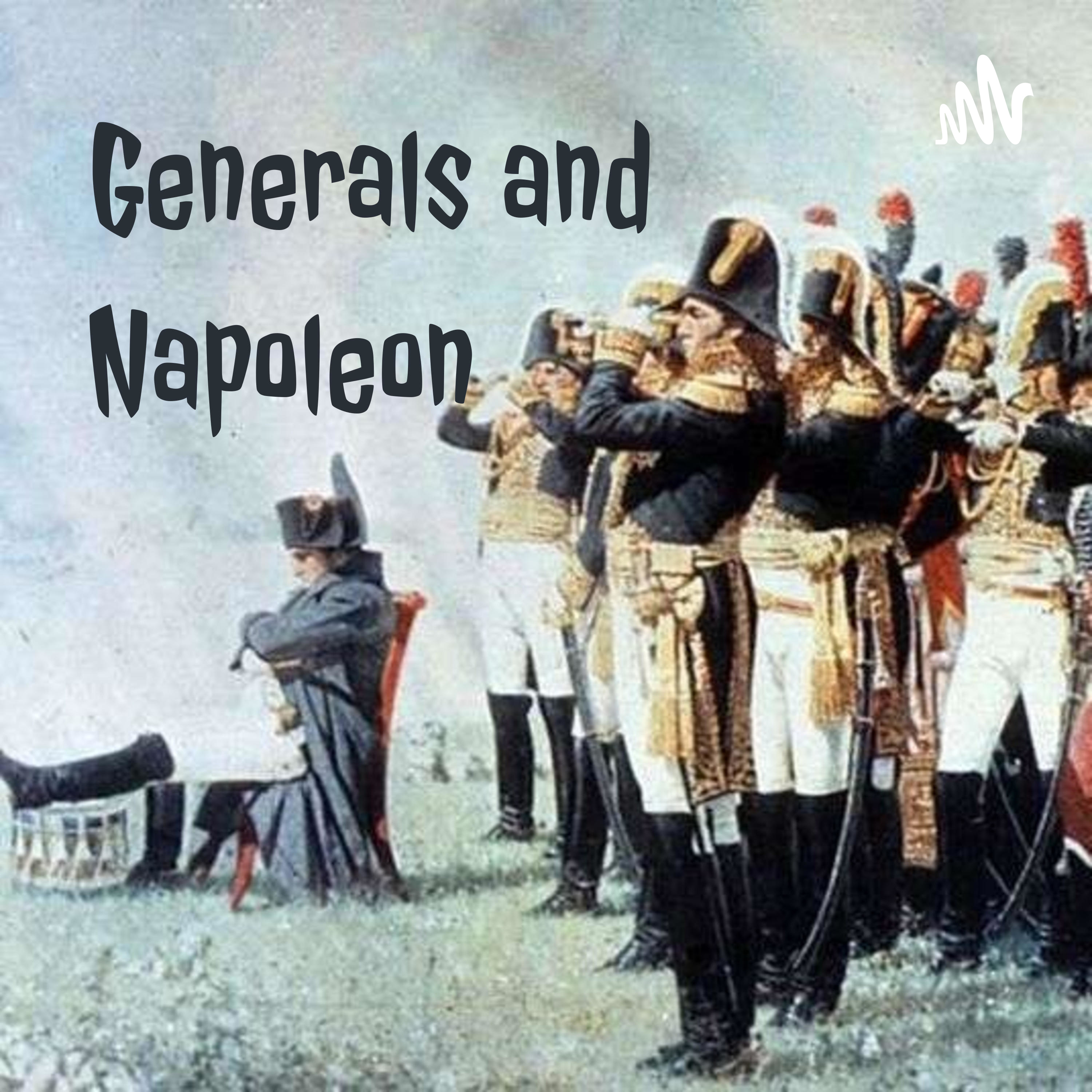
Generals and Napoleon
John W. Viscardo
Shipwrecks and Sea Dogs
Rich Napolitano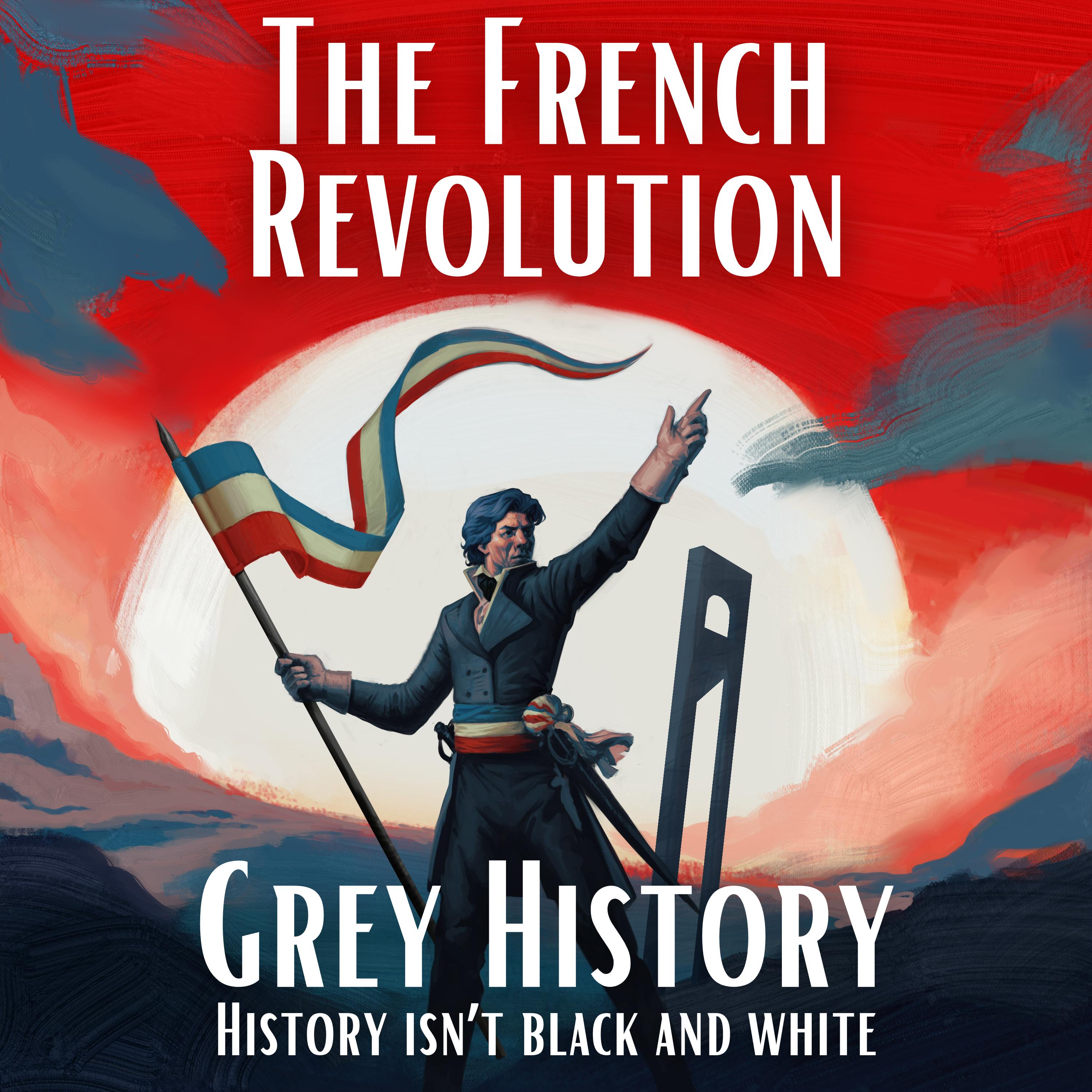
French Revolution & Napoleon (Grey History)
Grey History (William Clark)
The Life and Times of Frederick the Great
Alec Avdakov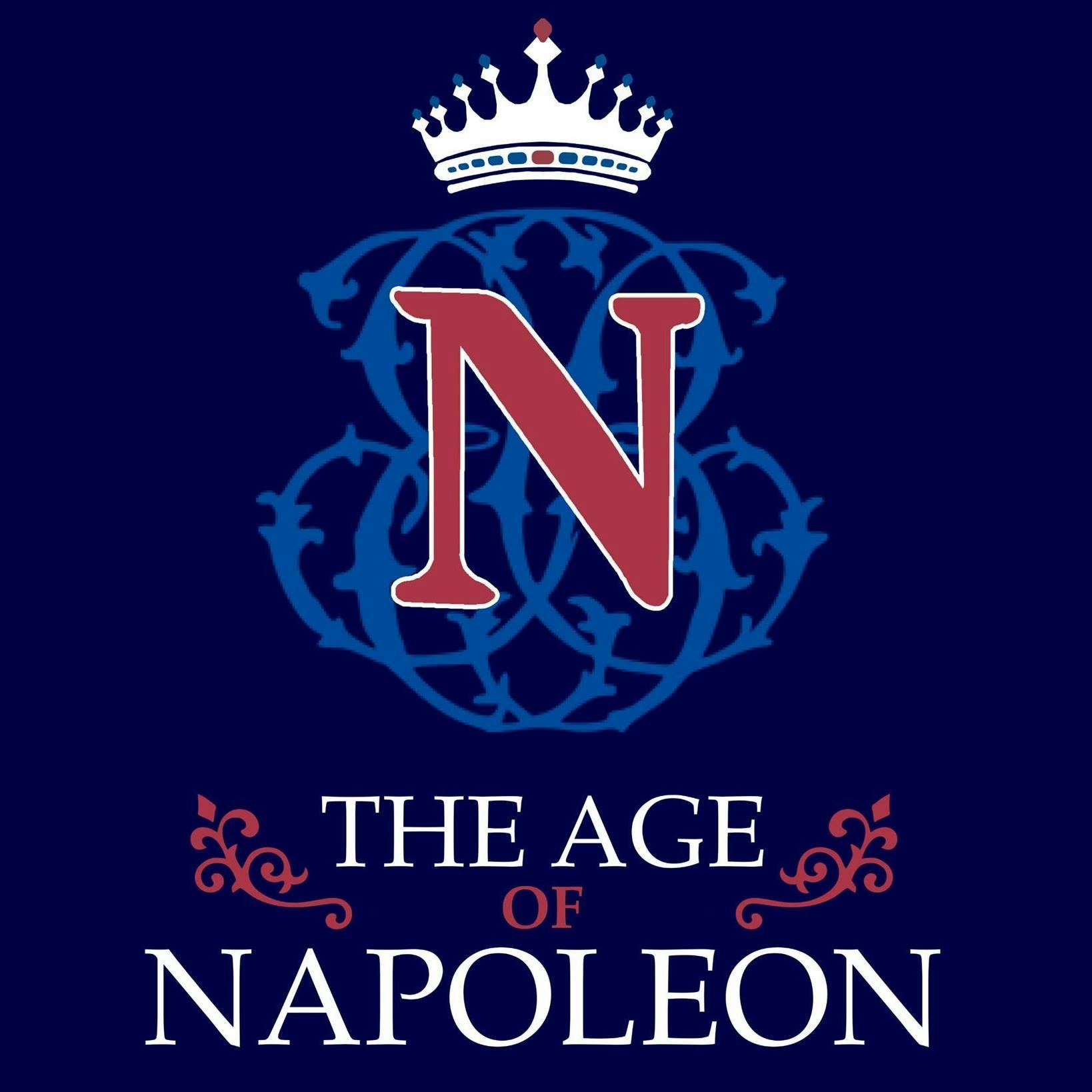
The Age of Napoleon Podcast
Everett Rummage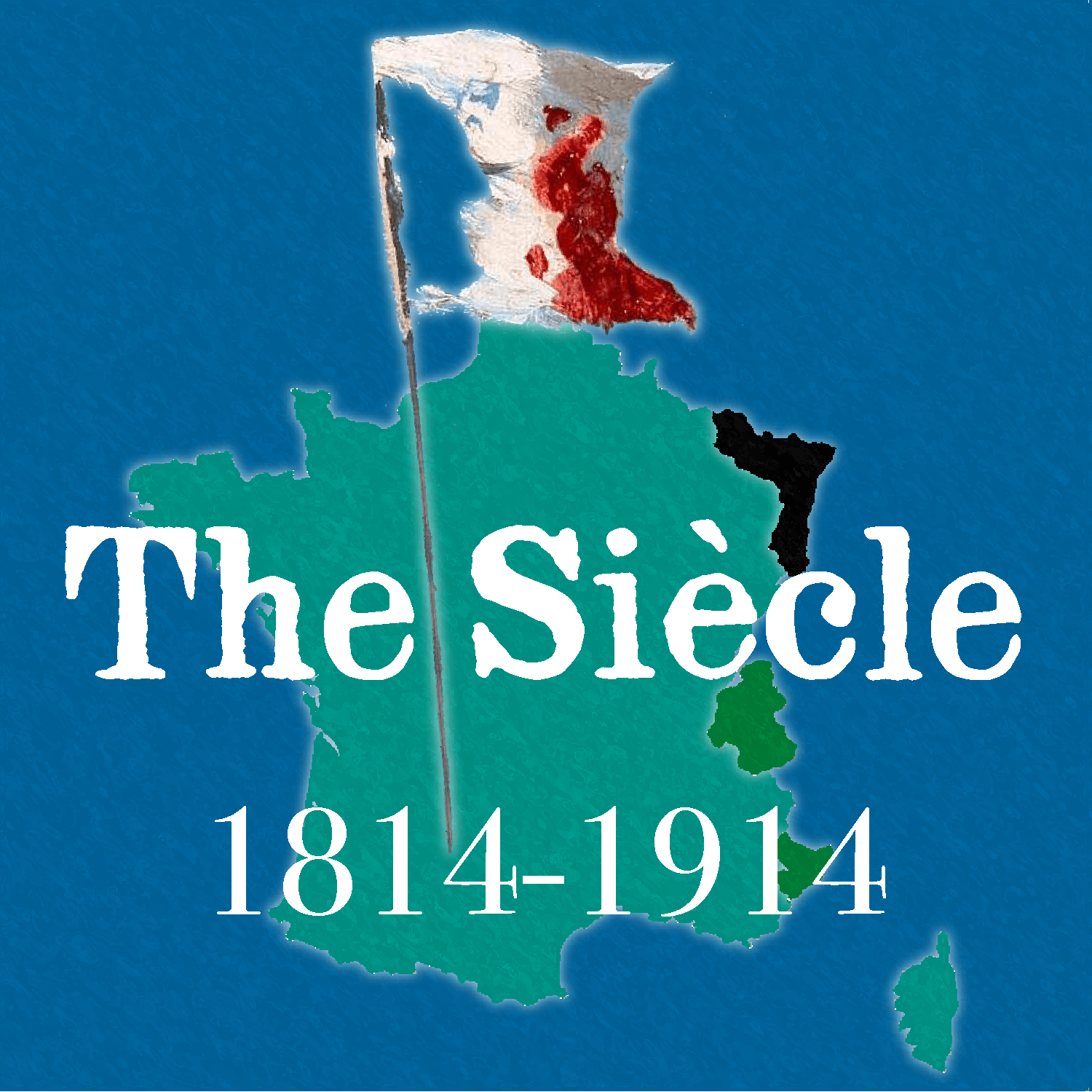
The Siècle History Podcast
Evergreen Podcasts
The Napoleonic Wars Podcast
Zack White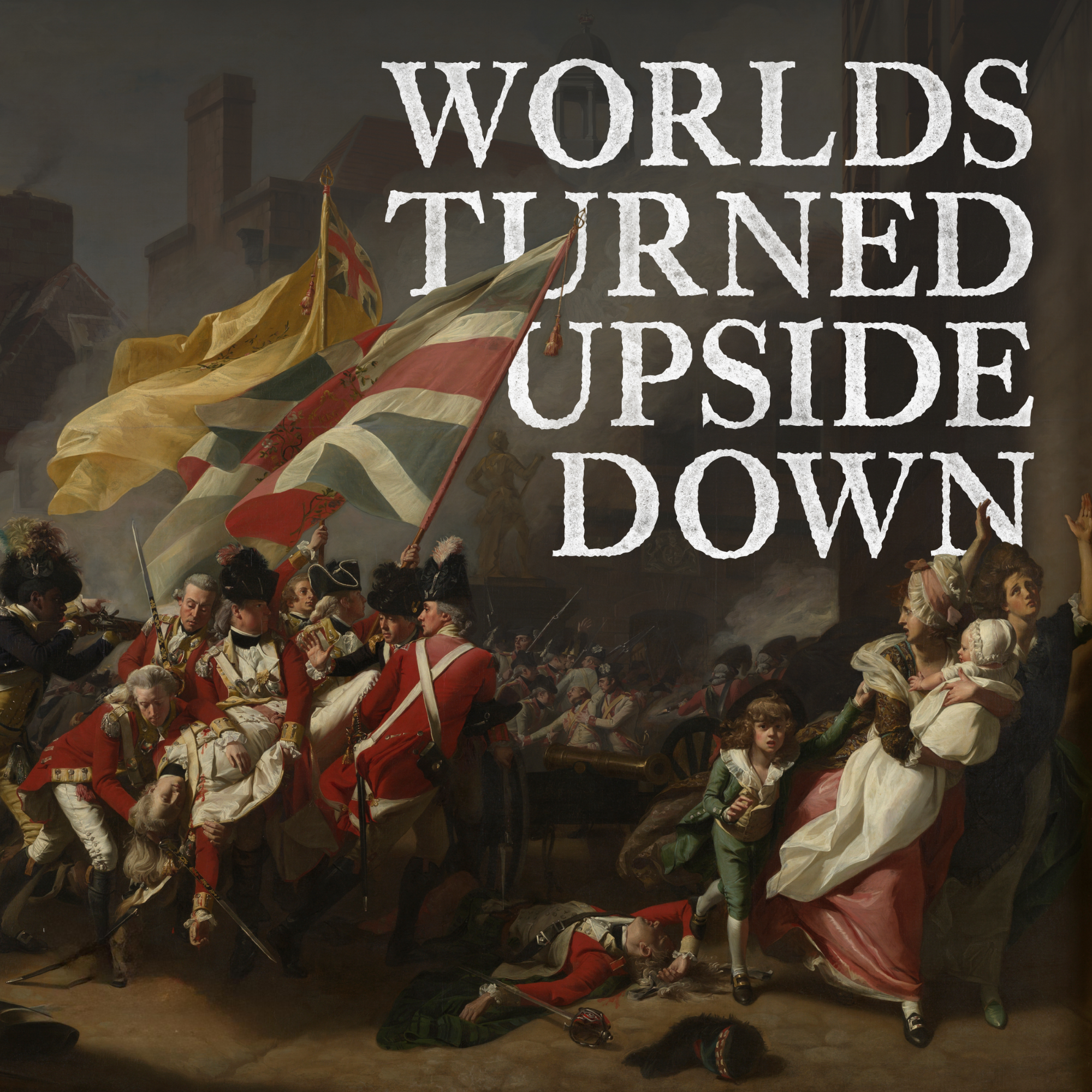
Worlds Turned Upside Down
Roy Rosenzweig Center for History and New Media
Empire-Builders
David Mainayar
Battles of the First World War Podcast
Mike Cunha
New York, Quebec, and The Water Route to the Center of the World
William Matthews
Deep into History
Deep into History
Battle Royale: French Monarchs
Ben Clarke and Eliza Sommers
A History of Japan
Justin Hebert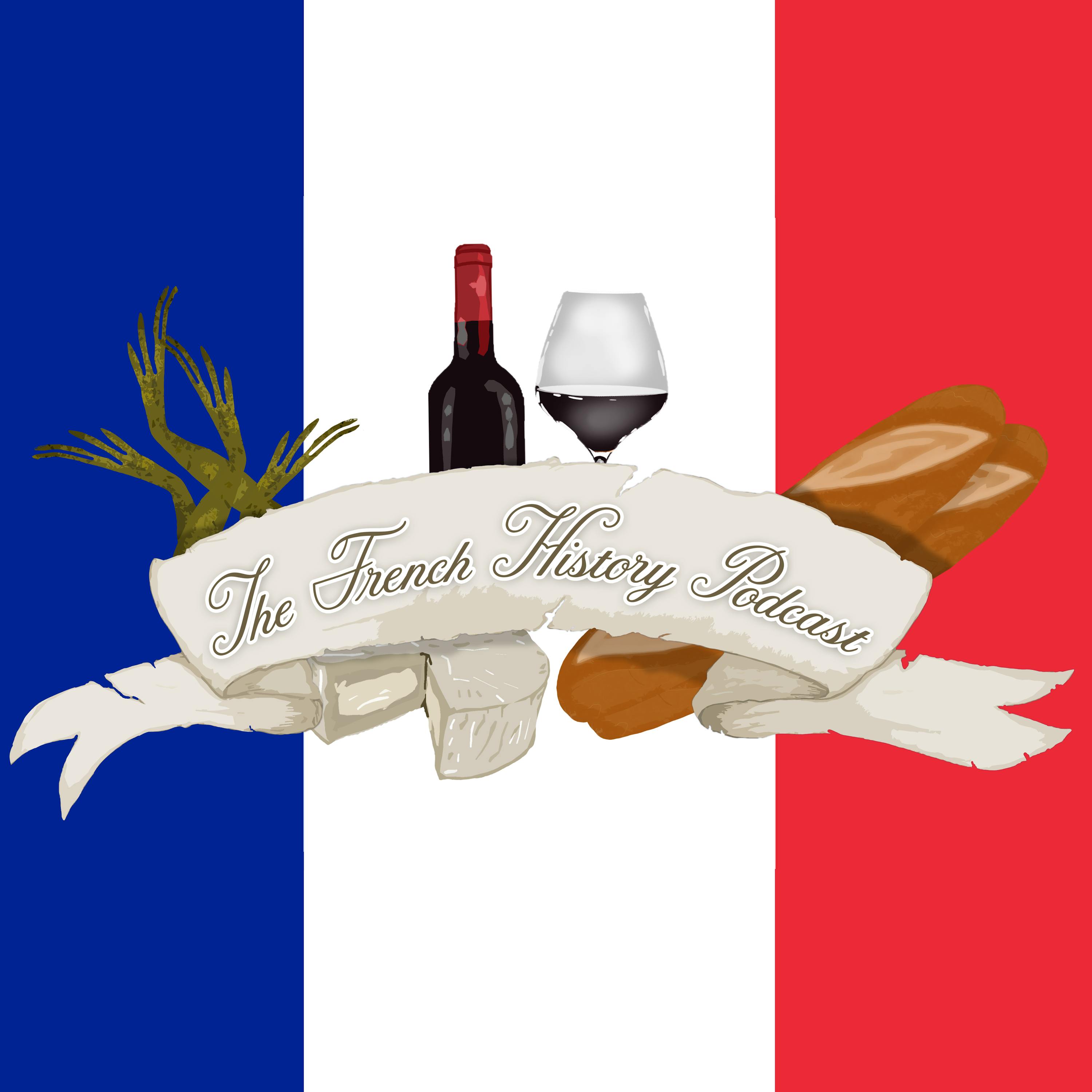
The French History Podcast
Evergreen Podcasts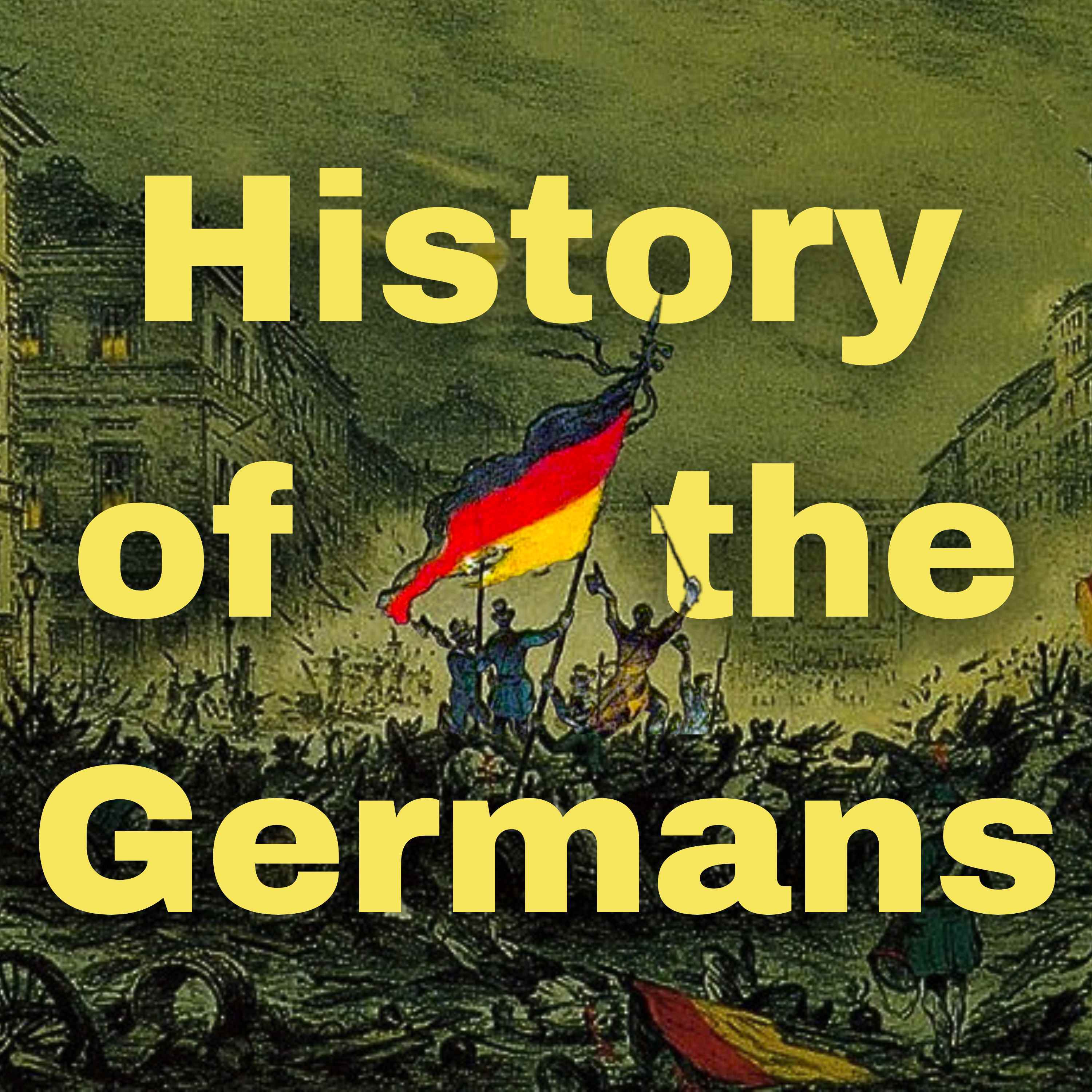
History of the Germans
Dirk Hoffmann-Becking
Half-Arsed History
Riley KnightFrench-Canadian Legacy Podcast
French-Canadian Legacy Podcast
The History of England
David Crowther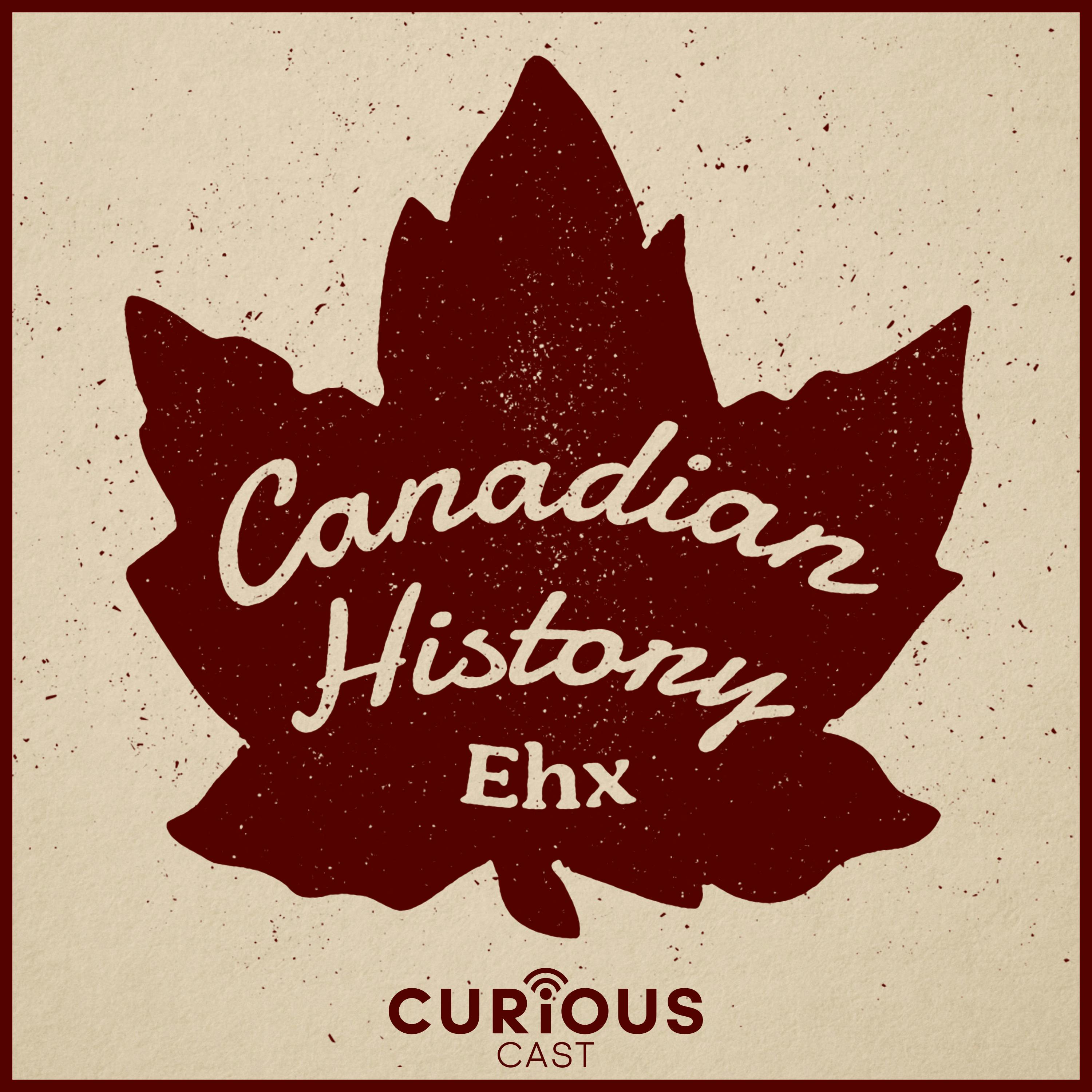
Canadian History Ehx
Craig Baird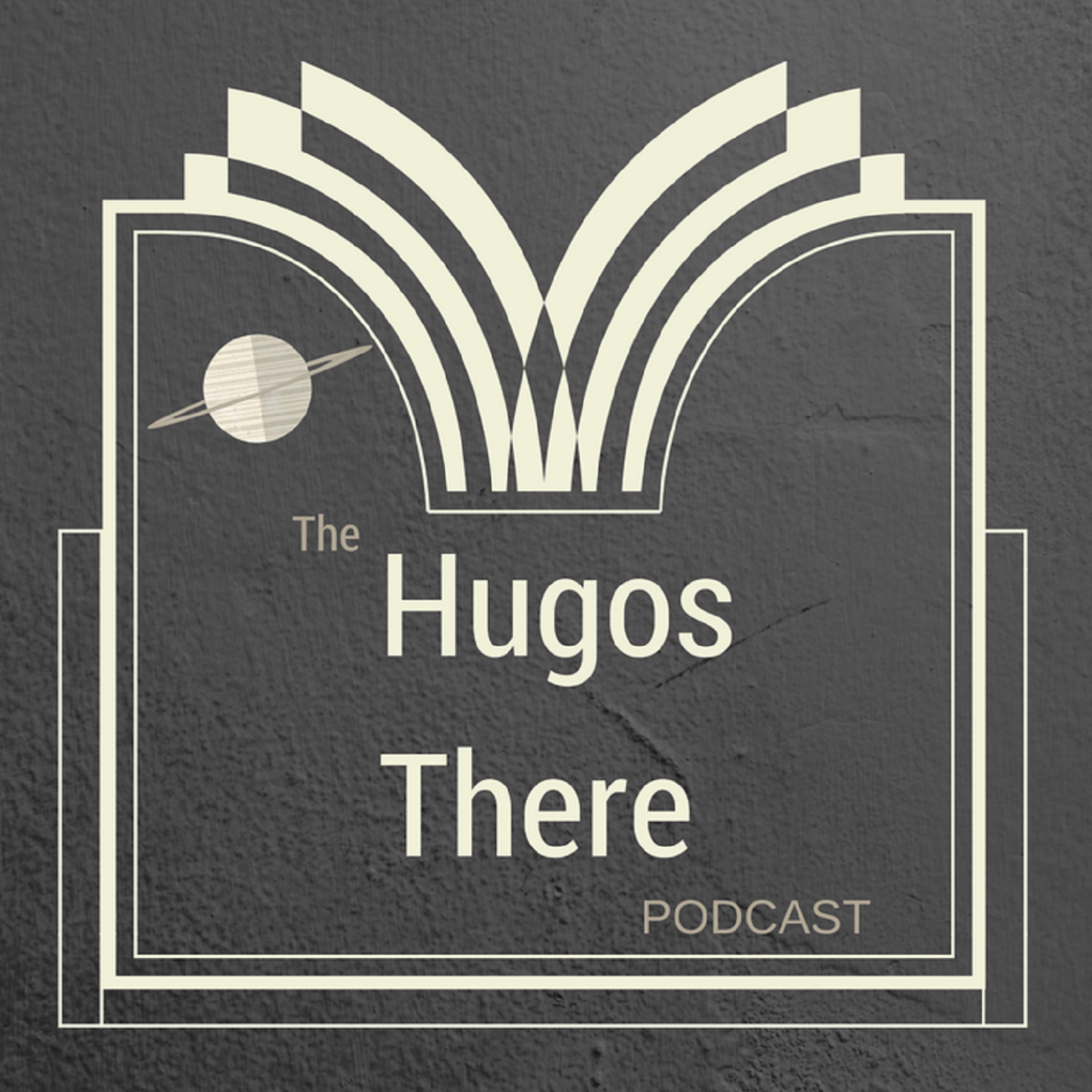
Hugos There Podcast
Hugos There Podcast
Hugo, Girl!
Hugo Girl

